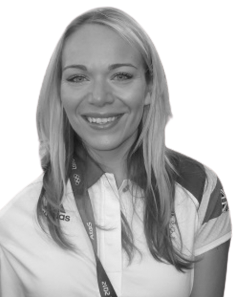18 PLAN, PLAN, PLAN
Look ahead across the whole race season and work out when the harder sessions will occur. These training peaks are when you’re most likely to need some soft tissue therapy or physio support. A structured approach to training and racing also helps to factor in rest and recovery periods, allowing you to plan quality/harder sessions when you are fresher, minimising risk of injury from fatigued training leading up to your first triathlon.
19 KNOW YOUR OWN BODY
Every athlete is unique, so develop a plan which is individual for you. You’ll know if you always get tight in a particular area when running, so can work on strengthening and stretching to suit you. Do this on a regular basis so you know when things don’t feel right and can seek advice early. A simple stretch and conditioning programme can address many common issues.
20 GIVE YOUR BODY REGULAR MAINTENANCE
Frequent, regular soft tissue therapy and massage can help not only at preventing injury, but also at promoting recovery from training and racing. A qualified therapist will be able to work with any specific muscular injury or tightness, as well as helping to promote muscle repair and recovery from hard training sessions and racing.
21 TAILOR YOUR WARM-UP
Make sure you have an individual pre-race warm-up and cool-down that’s
suited to your specific needs, maximising your race performance and minimising the
risk of incurring injuries.
22 GET YOUR EQUIPMENT SELECTION RIGHT
Poor-quality or ill-fitting equipment can lead to injury. Make sure your footwear – and the support it provides – is suitable to your biomechanics and the terrain on which you run. Regularly change your footwear when it becomes worn. And get your bike position professionally checked. A poor position on your bike can lead to injuries, as well as having a detrimental effect on race performance.
ELITE TIP
“Physio support is crucial to me and other elite athletes, but I’d recommend it for all athletes training for triathlon. I recently had a slip on a long run and couldn’t even swim without pain. After some compression, physio and ice, I was back on it.”
Helen Jenkins
